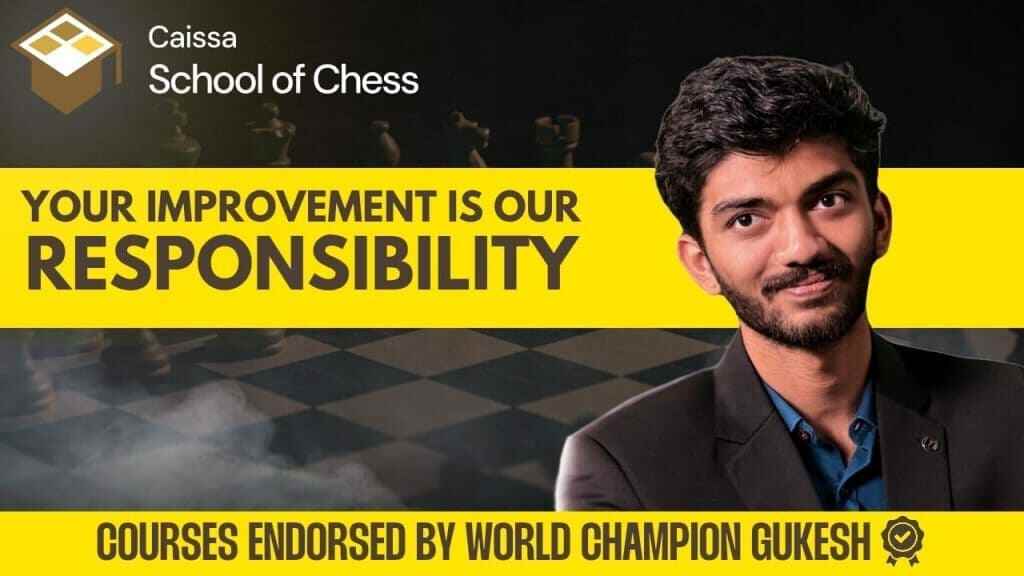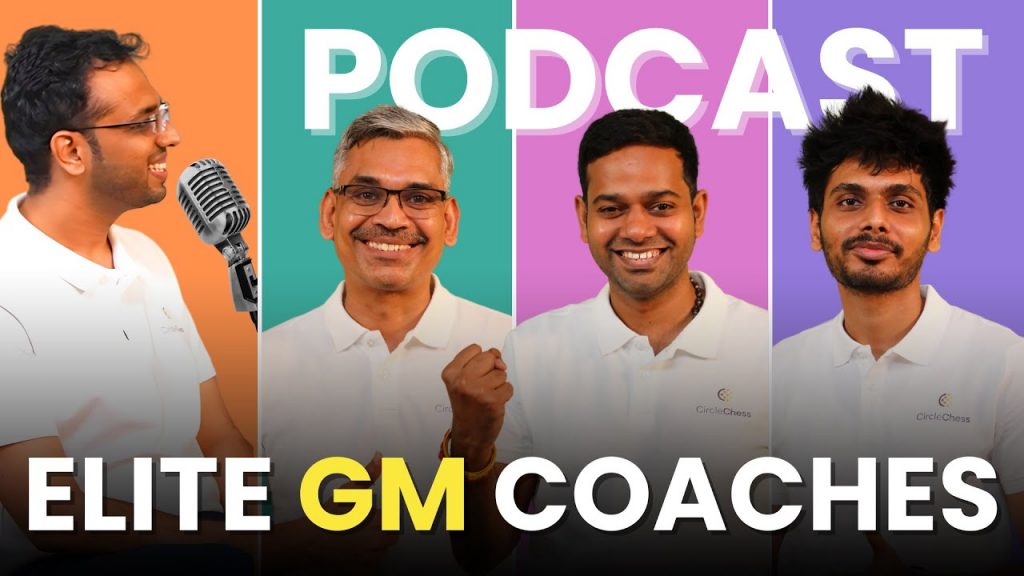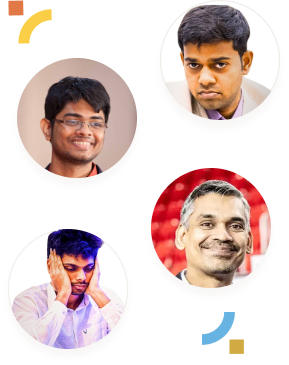Chess is a game that demands not only strategic thinking but also mental resilience and patience. While some young players climb the ranks with remarkable success, others find themselves stuck despite their efforts. The difference often lies in the approach to training, the support system, and the psychological framework surrounding the player. An exclusive podcast featuring elite Grandmaster coaches – GM Ramesh, GM Vishnu Prasanna, and GM Akash – shared key insights about what truly shapes a young chess player’s journey.
The Role of Parents: A Double-Edged Sword
Parents are undeniably one of the most influential factors in a young chess player’s development. Their support can either propel a child to greatness or become a source of unnecessary pressure. The coaches emphasized that while encouragement and logistical assistance (such as arranging coaching sessions and tournaments) are essential, overbearing expectations can backfire.
GM Akash pointed out that many parents, especially those unfamiliar with chess, often impose their own ambitions on their children. This creates a stressful environment where the child associates chess with anxiety rather than enjoyment. GM Vishnu added that unrealistic expectations are particularly harmful when parents compare their children to prodigies like Gukesh or Praggnanandhaa, expecting similar results without considering individual growth trajectories.
To address this, CircleChess has introduced a system called Chess Buddies, where each student is paired with a mentor. This buddy serves as a guide not only for the child but also for the parents, helping them understand the right level of involvement. By fostering open communication and setting realistic goals, the program ensures that parental support remains a positive force rather than a hindrance.
Technology’s Transformative Impact on Chess Coaching
The surge in chess popularity has led to an overwhelming demand for coaching, far exceeding the number of available qualified trainers. Here, technology has stepped in as a game-changer. AI-powered tools like Caissa, developed by CircleChess, are revolutionizing how players train by automating game analysis and providing personalized feedback.
These tools identify recurring mistakes (such as tactical blunders or endgame weaknesses) and generate targeted exercises to address them. For players who lack access to high-level coaches, this technology offers a viable alternative, ensuring they still receive elite-level insights. GM Akash explained that while AI doesn’t replace human coaches, it significantly amplifies their impact by handling routine analyses and freeing them to focus on strategic guidance.
Chess Buddy system is an innovative approach, that pairs students with mentors for instant feedback. This scalable model ensures that even as the number of students grows, each one receives individualized attention. The buddy acts as a first point of contact for both the child and parents, clarifying doubts about training plans, tournament selections, and other chess-related decisions. This blend of technology and human mentorship creates a balanced and effective learning environment.
The Critical Habit of Game Review
One of the most common mistakes young players make is playing game after game without taking the time to review them. The coaches stressed that skipping this step severely limits improvement. Analyzing losses helps players recognize recurring mistakes, whether they’re tactical oversights, poor time management, or strategic missteps.
While self-review is valuable, it has limitations. Players can only critique their games based on their current understanding, which may not uncover deeper issues. This is where AI tools like Caissa prove invaluable. They provide unbiased, detailed analyses, highlighting errors that might otherwise go unnoticed. For instance, a player might realize they consistently mishandle rook endgames or struggle with certain opening lines – a revelation that can shape future training priorities.
GM Vishnu advised focusing primarily on classical games for review, as blitz and bullet games often contain time-pressure mistakes that don’t reflect true weaknesses. By making game analysis a disciplined habit, players can transform losses into learning opportunities and steadily refine their skills.
Group Learning vs. Individual Coaching: Finding the Right Balance
The debate between group and individual coaching is a nuanced one. For beginners and intermediate players, group classes offer unique advantages. GM Ramesh explained that young learners thrive in environments where they can observe and emulate stronger peers. The group dynamic fosters healthy competition, motivates consistent effort, and teaches discipline – all of which are crucial in the early stages of chess development.
However, as players advance, their needs become more specialized. Those nearing the 2000 Elo mark, for example, may require one-on-one coaching to address specific weaknesses or prepare for high-stakes tournaments. Individual sessions also allow for deeper psychological conditioning, helping players manage pressure and mental blocks that aren’t easily addressed in a group setting.
The key is to strike a balance. Starting with group training builds a solid foundation, while transitioning to personalized coaching ensures continued growth at higher levels. This phased approach maximizes both the social benefits of group learning and the tailored guidance of individual mentorship.
The Overlooked Power of Psychology in Chess
Chess is as much a mental battle as it is a technical one, yet psychological training is often neglected until players reach elite levels. The coaches highlighted that self-awareness is the cornerstone of mental resilience. Players must learn to identify their psychological triggers – whether it’s fear of losing, anxiety against higher-rated opponents, or overconfidence against weaker ones.
GM Vishnu shared that many young players are unaware of their mental barriers until they’re asked probing questions. For instance, a child might not realize that their fear of playing on the top board in a final round is affecting their performance. Techniques like meditation and journaling can help players develop this self-awareness, separating emotions from decision-making during games.
The success of players like Gukesh, who hired a mental performance coach for the World Championship, underscores the importance of psychology at the highest levels. Integrating mental training early in a player’s journey can prevent burnout, enhance focus, and build the resilience needed to navigate the ups and downs of competitive chess.
Akash described CircleChess as a platform designed to democratize chess improvement, making high-quality training accessible to millions. Vishnu emphasized the goal of building the world’s largest chess community, capable of meeting the growing demands of aspiring players. Ramesh added that the focus is on creating a holistic ecosystem where no player is left behind due to gaps in training or support.
By combining technology, expert coaching, and a deep understanding of the psychological and logistical challenges young players face, CircleChess aims to nurture the next generation of chess talent. Whether through AI-driven tools, the Chess Buddy system, or tailored training programs, the organization is committed to providing the resources players need to succeed.
Success in chess is not just about talent or hard work – it’s about the right environment, the right guidance, and the right mindset. Parents must balance support with space, technology must complement human coaching, and players must cultivate discipline in both their training and their mental approach.
For young players, the journey is a marathon, not a sprint. By focusing on gradual improvement, embracing both wins and losses as learning opportunities, and seeking a balanced approach to training, they can unlock their full potential. And for the chess community as a whole, the insights shared by these elite coaches serve as a reminder that the game’s future lies in collaboration, innovation, and a deep respect for the psychological dimensions of play.





